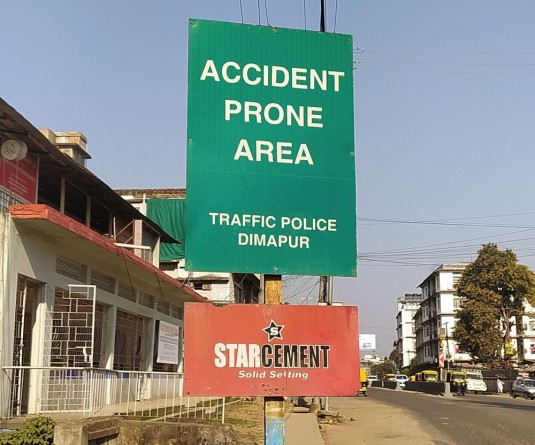
In cordial with the right to information act 2005 India, the Nagaland information commission was constituted on 14th March 2006 vide govt. order No.AR-3/GEN-147/2005 on the recommendation of the appointment committee constituted in term of section 15(3) of the right information act and under the provision of section 15(1)&(2) the former governor of Nagaland Shyamal Datta administered the oath of office for greater transparency in public domain.
The ideology and its conceptualization was India being one of the most corruptive country in all levels and to rein in the unrefined corruption this noble idea called RTI. ((Right to information) was put to ordinance and had ratified by all the states and union territories in the country of India.
The exhaustive RTI act covers all the public domain that manned by authority personals/ bureaucrat who are liable to question through RTI appealing procedure by any organization, NGO, or individual who is a citizen of India if there be found any discrepancy where, the appellate authority is bound to furnish in electronic or written statement within 30 days and can re-appeal within 40 day and 90 days respectively.
However sadly, it is learnt that the very act becomes a tool of self gratification for some here in Nagaland where, hundreds of RTI lost its steam in the process except ACAUT and some righteous social workers/activists who truly protect the interest of the public.
Here how the system has be conveniently exploited for self gratification and how it should be overcome through public debate on the matter.
No wonder there are some unscrupulous black-sheep who are adversely innovative in exploiting the loopholes in every system and no exception in the case of RTI as well who tend to play the part of angel in the garb of sheep clothing had completely stymied the system that ultimately defeated the very purpose.
The operandy that played into the core of the system has it that; taking advantage of the appealability by individual within the ambit of the RTI act 2005, where, many self interest persons submit their application through information commission to the appellate authority of a certain department requesting to provide information for project or appointment or utilization of fund sanctioned etc. whereas here when pushed to the wall with hard evidences, there comes a lot of nasty negotiations through coercing the petitioners with certain percentages of the total amount involved in the case. Thus, thereby the petitioner whimsically withdrew the petition or humble down to any justification prompted by the appellate authorities. That’s how most of the RTI application lost its virtue to the bogus cops.
True, there are real cops and bogus cops where, an organization like ACAUT who transparently pursue the case and putting up its finding in public domain through electronic or print-media exposing the fact and figures to its logical conclusion is the real cop whereas, hundreds of RTI cases filed by individual frequently failed to surface in public domain are the bogus cops who, share the loots with the corruptive authorities.
Remember, a tool that plough your field also capable of digging your grave called spade and the very RTI here seems to be behaving adversely like a fence that eats the crop can be a thing serious concern for the public to ruminate upon. Nevertheless, it is in the knowledge of many intellectuals and suspects something amiss but no one likes to create a raucous for no personal gain. However this mess cannot be entangled with the information commissioner and his good office for they are licitly following the act and disposing the case as per the version statement of the petitioner and the appellate authorities.
Therefore, it is imperative and prudent that the matter be put before the public for comprehensive debate so as to seal the loopholes with preemptive measure that will ultimately sharpen the tooth of the RTI or else it’s becoming a toothless tiger.
However, please take note that the writer of this article has no obligation to point out any person or department or has any inclination with any political party or organization whatsoever nor answerable to any authority therein.
N. Haisoyi Ndang Author, Naga Script & Zeliang customary laws. Lower Bayavu Kohima



